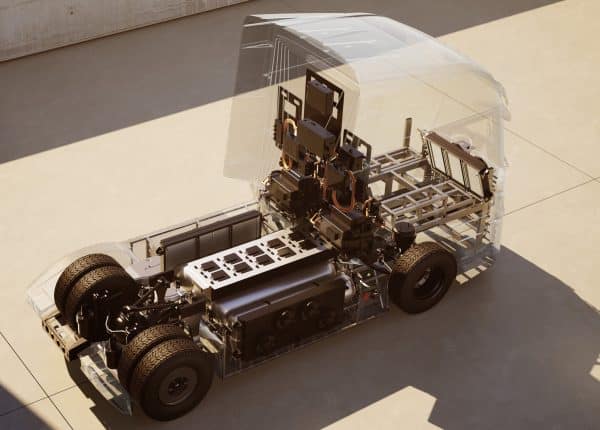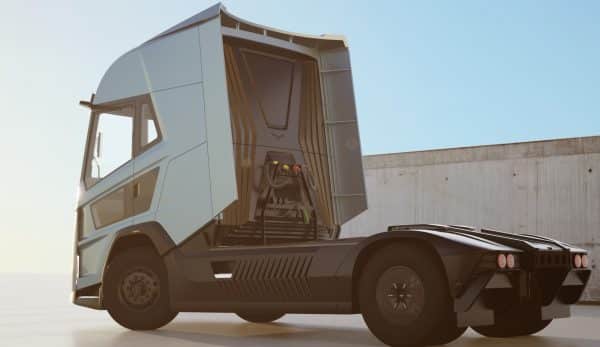
Hydrogen Vehicle Systems (HVS) has launched a new platform for heavy goods vehicles (HGVs) that runs on hydrogen fuel cells and offers maximum flexibility for operators.
The platform is designed from the ground up to optimise the performance, range and durability of zero-emission trucks.
The company’s tractor unit can be customised with different types of e-axles, hydrogen tanks and power outputs depending on the customer’s needs.
The platform has a fixed wheelbase and a spacious cab that does not vary with the specification. The powertrain is housed in a rear tower that provides easy access for maintenance and upgrades.
‘Offering maximum modularity within a single base vehicle platform’
Pete Clarke, the head of design at HVS, said: “We’re offering maximum modularity within a single base vehicle platform, and we would never have been able to achieve this level of flexibility and optimisation with a diesel-powertrain derived vehicle design.”
He added that the platform was created around the optimal powertrain format, ensuring that form followed function.
The modular platform allows operators to define their HGV specification relative to their operation, while simultaneously transitioning to a zero-emission fleet.
The HVS approach is to ensure that it supplies vehicles in the most appropriate form for the job requirement.
Trucks can easily be retrofitted with alternative modules

This has the effect of minimising the total cost of ownership (TCO) and provides a compelling business case for early switching to CO2-free vehicles.
The company’s emphasis is on price-per-mile usage and ensuring operators achieve the performance, range and durability they require of this next generation of freight workhorses.
Enables owners to take advantage of technological advancements
HVS says its approach to refurbishment and replacement enables owners to take advantage of technological advancements much more so than conventional diesel trucks or even current battery electric equivalents.
The firm adds that it is developing new hydrogen drivetrains for its future vehicles, with a focus on efficiency, reliability and safety.
The company aims to deliver its first vehicles to customers in 2024.

